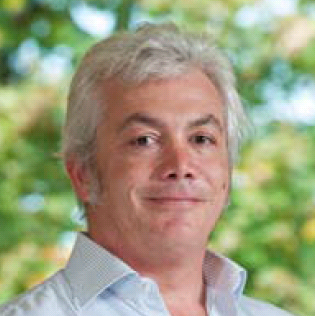‘Monitoring Big, Distributed, Streaming Data’
Prof. Assaf Schuster
Computer Science Department
Technion - Israel Institute of Technology

ABSTRACT
More and more tasks require efficient processing of continuous queries over scalable, distributed data streams. Examples include monitoring over battery-operated IOT and smart systems, optimizing systems using their operational log history, mining sentiments using sets systems of crawlers, and data fusion over heterogeneous sensor networks.
However, distributed mining and/or monitoring of global behaviors can be prohibitively difficult. The naïve solution which sends all data to a central location mandates extremely high communication volume, thus incurring unbearable overheads in terms of resources and energy. Furthermore, such solutions require expensive powerful central platform, while data transmission may violate privacy rules.
An attempt to enhance the naïve solution by periodically polling aggregates is bound to fail, exposing a vicious trade-off between communication and latency. Given a continuous global query, the solution proposed in the talk is to generate filters, called safe zones, to be applied locally at each data stream. Essentially, the safe zones represent geometric constraints which, until violated by at least one of the sources, guarantee that a global property holds. In other words, the safe zones allow for constructive quiescence:
There is no need for any of the data sources to transmit anything as long as all constraints are held with the local data confined to the local safe zone. The typically-rare violations are handled immediately, thus the latency for discovering global conditions is negligible. The safe zones approach makes the overall system implementation, as well as its operation, much simpler and cheaper. The saving, in terms of communication volume, can reach many orders of magnitude. The talk will describe a general approach for compiling efficient safe zones for many tasks and system configurations.
BIO
Professor Assaf Schuster of the Computer Science Department at the Technion is an ACM fellow and a world leading expert of distributed and scalable data Mining, Big Data technologies analytics & prediction, Cyber security and system vulnerabilities, privacy preserving, cloud resource management and more.
Prof. Schuster published more than 200 papers in highly selective conferences and journals, some of which won prestigious awards. He consulted leading hi-tech companies and participated in the bumpy journey of quite a few startups, some of which were successful. His research group is well known for its contributions to the field of big data and scalable, real-time knowledge discovery in distributed data streams.
'Mobility Coordination in Urban-scale Socio-Technical Systems'
Franco Zambonelli

ABSTRACT
BIO





































